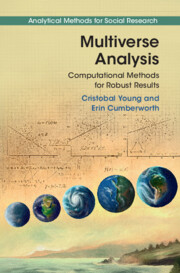
- Publisher:
- Cambridge University Press
- Online publication date:
- February 2025
- Print publication year:
- 2025
- Online ISBN:
- 9781009003391
- Subjects:
- Politics: General Interest, Research Methods in Sociology and Criminology, Research Methods In Sociology and Criminology, Sociology

